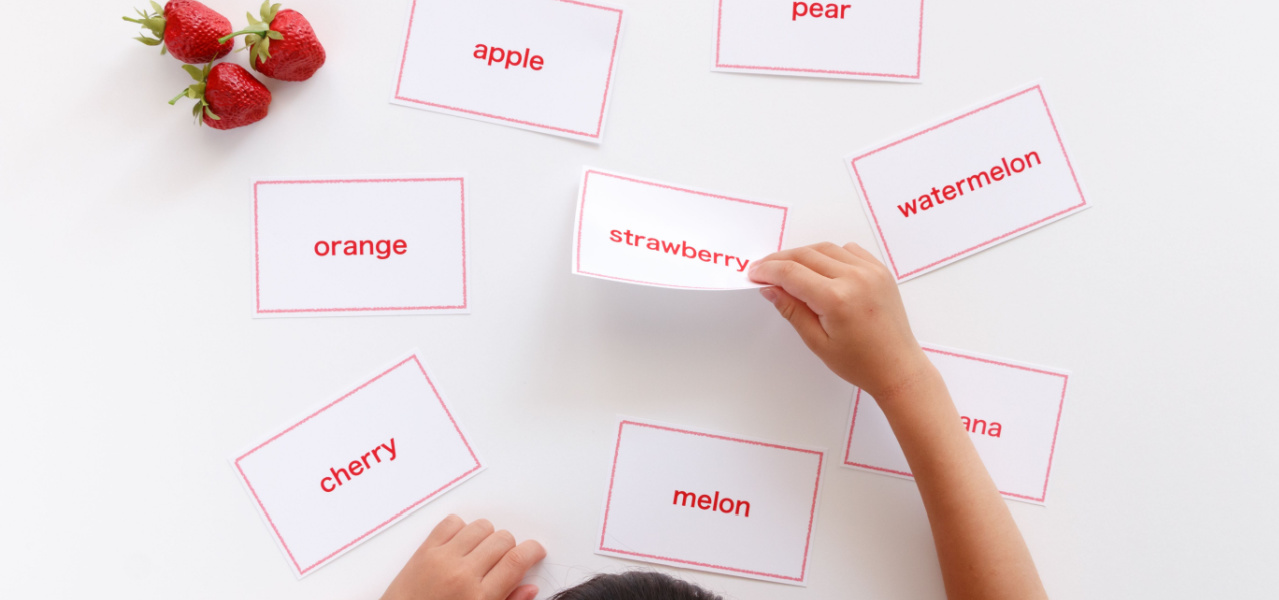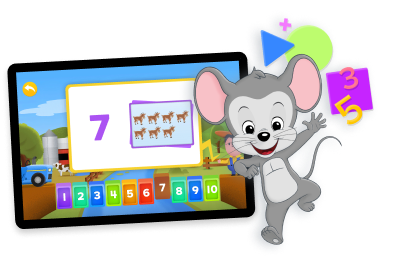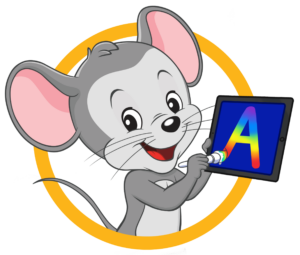
What are High Frequency Words? (First 100 Printable List)
Find a printable list of 100 high frequency words for your child, along with tips and insights on teaching them.
High frequency words are those that are used most often in written and spoken language. English is a huge language, with possibly as many as a million words. Fortunately, you don’t need to know nearly that many words to be fluent.
Linguists estimate the top 100 high frequency words make up as much as 50 to 60 percent of all written texts. These are simple words, so they make up an even higher percentage of texts geared toward younger readers. In fact, one study found that 25% of school texts are made up of just 13 high frequency words!
Given the importance of these words, most reading programs focus on high frequency words to give new readers a boost. But the way these words are taught can vary, as can the words themselves. Here’s what you need to know about high frequency words and the best ways to teach them.

Are High Frequency Words the Same as Sight Words?
Sight words are words that appear so often in text that students are urged to simply memorize them rather than learning to decode them using phonics. But newer research indicates this method might be doing kids a disservice, especially those that struggle with reading.
That’s why many reading programs are replacing the concept of sight words with phonetic instruction high frequency words instead. Instead of requiring students to memorize them, they teach students to decode them (sound them out using the rules of phonics) whenever possible. Incorporating a variety of high frequency word resources and activities into your child’s learning can help them stay engaged while learning new words.
How Many High Frequency Words Are Decodable?
Many of the words on the high frequency lists are decodable, meaning they use regular phonics spelling and pronunciation patterns. That’s why many experts now recommend teaching decodable high frequency words at the same time children learn the phonics methods used in those words. Since so many of the words on the list are decodable, there’s no need to make kids memorize them.
Decodable high frequency words are often called “flash words,” because it helps when kids can read them in a flash. (You might also hear them called “popcorn words” because they pop up so often.) Remember that words become decodable as kids build their phonics skills, so words that are “flash words” for more advanced readers might not be decodable for newer readers. You can learn more about decodable words and how to teach them here.
Some of the words that appear on the first 100 high frequency words list are fully decodable for kids who can decode vowel-consonant (VC) and consonant-vowel-consonant (CVC) words.
- an
- if
- up
- had
- not
These are examples of high frequency words that are fully decodable for more advanced students who have learned silent-E and beginning/end consonant blends, and vowel teams.
- that
- make
- then
- each
- just
Of course, some high frequency words break some or all of the standard phonics rules, and these are words students will need to memorize. These are often referred to as “heart words,” because students need to learn them by heart. Here are a few examples from the top 100 high frequency words list:
- to
- the
- we
- are
- your
How to Teach High Frequency Words
Given the importance of these words, most reading programs focus on high frequency words to give new readers a boost. But the way these words are taught can vary, as can the words themselves. Here’s what you need to know about high frequency words and the best ways to teach them.
Start With a Pre-Phonics High Frequency Words List
Some high-frequency words appear so often that it’s helpful for students to recognize them right off the bat. Experts recommend introducing these words after kids have mastered letter-sound correspondence, but before beginning true phonics instruction.
Knowing these words will help students read full sentences, which is more motivating and satisfying for emergent readers. For instance, in the sentence “The big cat is fun,” both “the” and “is” are high frequency words that can’t be decoded. By teaching kids these words in advance, they’ll be able to read short passages made up of easily decoded CVC words and a few high frequency heart words and feel like “true readers.”
Start with these non-decodable high-frequency words:
- to
- is
- of
- the
- a
- and
- was
- for
- you
- I
Match Decodable High Frequency Words to Phonics Instruction
As you begin each new phonics rule with your child, look for high frequency words that fit that pattern and start your instruction with those.
Example: The first types of words students usually learn to decode are vowel-consonant (VC) and consonant-vowel-consonant (CVC) words. The high-frequency words list actually contains quite a few of these, such as “in,” “on” and “but.” Make these some of the first VC and CVC words you teach, as students will encounter them often.
Group Heart Words
Some words are used so frequently that we introduce them to students before they’ve learned the appropriate phonics rules. For instance, “came,” “take,” and “like” all follow standard phonics rules (silent-e), which is a more advanced skill. But it’s often helpful for kids to learn these words sooner rather than later, so we teach them earlier as heart words they need to memorize.
Other heart words follow their own pattern that kids can use to help them out. For instance, think of words like “be, me, he, me, we.” Though they don’t follow usual phonics rules, all of them use the same pronunciation pattern.
In both cases, it’s best to teach words like these grouped by their common patterns. This makes it easier for new readers to learn and retain them.
There are some high frequency words that are true outliers: laugh, because, from, their, etc. But even these words have some decodable parts, since at least some of their letters and letter combinations are pronounced as expected. Teach your student to look for familiar sounds and letter patterns to make these heart words easier to memorize.
First 100 High Frequency Words List
Use this free printable list to help guide your student along their reading journey. It’s grouped by phonics rules and other common patterns, making it easier to teach these words at the appropriate time.
Pre-Phonics Words
- a
- and
- for
- I
- is
- of
- the
- to
- was
- you
VC and CVC Words
- am
- an
- at
- big
- but
- can
- did
- get
- had
- him
- if
- in
- it
- not
- on
- red
- up
- yes
Consonant Blends Words
- ask
- its
- jump
- just
- long
- that
- them
- then
- this
- went
- when
- will
- with
Silent-E Words
- came
- like
- ride
- take
Vowel Teams and Digraphs
- down
- good
- green
- how
- look
- now
- out
- see
Words That Can Be Grouped by Patterns
- be
- he
- me
- she
- we
- go
- no
- so
- come
- some
- there
- where
- could
- would
- about
- around
Heart Words to Memorize
- all
- any
- are
- as
- blue
- do
- don’t
- every
- four
- from
- got
- have
- her
- his
- into
- know
- little
- my
- one
- over
- pretty
- put
- right
- said
- they
- too
- very
- want
- were
- what
- your
Download our entire printable list of 100 High Frequency Words for Kids.
#1 Downloaded Kids’ Education App in the U.S.
The ABCmouse app has so much to offer! You and your child will find 10,000+ games and activities designed by curriculum experts to nurture math and reading skills, along with an extensive digital library and so much more. Our research-back curriculum focuses on preschoolers through second graders.


Then just $14.99 a month until canceled
Additional Resources
ABCmouse has kindergarten activities and games designed by early education experts to help your child keep learning:
PreK Sight Word List
This word list for preschoolers can help get your child started with high frequency words.
Browse →
Kindergarten Sight Word Activities
Engage your child with interactive activities that help grow their sight word skills.
Browse →
How to Teach Phonics
Phonics are an essential part of learning to read. Here are some tips to help you get started with your child.
Browse →
ABCmouse’s expert advice review process:
Our team of ABCmouse Curriculum Experts, made up of talented professionals in early childhood education and development, take a close look at educational content and learning claims. They put in the effort to make sure our information is accurate and current. We have a certified educator or another respected authority review the content, matching their expertise with the topic at hand. They’ll make sure the content is thorough and follows the latest research and educational guidelines. If they think we can make things even better, they’ll chat with our editorial team, and we’ll make those improvements right away. Only after a reviewer gives their thumbs-up does a piece of content get the official stamp of approval in the byline.
Check Out the ABCmouse Online Learning Tools!
ABCmouse offers so much more than coloring pages for your child, including interactive and engaging content that reinforces math and reading skills. Our app features 11,000+ learning activities and 850+ complete lessons for children aged 2–8, as well as personalized learning paths.
Then just $14.99 a month until canceled


